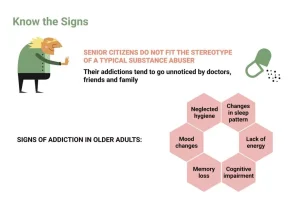
You feel the tension between who you believe your future partner must be and how much you enjoy spending time with this person. To reduce the dissonance, you may lower the value that you put on all those boxes you hoped this person would tick. You could be in a state of cognitive dissonance any time you feel guilty about a choice you made or find yourself trying to justify an action that you just took. Let’s say it’s a particularly cold and dreary month of the year and someone who typically sees herself as a social butterfly finds herself spending a lot of evenings alone at home.

What is the difference between cognitive dissonance theory and balance theory?
- Modifying the action usually means trying to justify or rationalize why you acted the way you did (since you can’t simply undo whatever it is you did).
- Cognitive dissonance and the way we cope with it regularly affect our relationships, too, both positively and negatively.
- You think you value the environment, but you never remember to bring reusable bags to the supermarket and feel ashamed every time you walk away with arms loaded down with disposable plastic bags.
- Or you may eventually change your beliefs about your partner and get out of the relationship.
- They could only overcome that dissonance by coming to believe that the tasks really were interesting and enjoyable.
To get rid of that icky feeling you have about voting for the other candidate, you may look into that other candidate’s party and decide that you want to support that group instead. Or, maybe, in order to avoid voting for the other candidate in the first place, you research the bad neighborhood policy so that you can better understand it and get behind both the policy and your party’s candidate. Think of the types of decisions that cause you to make a list of pros and cons. After you’ve made the decision, you may dwell on it or second-guess yourself. You go back and focus on all the cons of your choice and all the ways this decision doesn’t agree with what you want. When you receive new information that challenges your beliefs – like learning that the owner of the local bakery isn’t a good employer – you can feel cognitive dissonance.
Why Recognizing Cognitive Dissonance Can Be Helpful
In the dating app example, it would be unlikely for you to find many dates if all the candidates must first check off a list of must-haves that’s four pages long. You might have to prioritize just a few traits and take the weight off some of the others if you want to meet someone. It’s just a small local election.” Maybe you even told yourself that your vote probably wouldn’t affect the outcome that much anyway. You also swore you wouldn’t tell any of your friends or family how you voted.

Reduce the importance of the cognitions (i.e., beliefs, attitudes).
You may initially feel pretty upset — ”just one more daily annoyance.” But then you rationalize. “You might say to yourself that it’s okay because there wasn’t much left and, anyway, there’s coffee usually brewing in the office kitchen,” Dr. Noulas says. This article provides some examples of cognitive dissonance, discusses the signs, and offers some suggestions on how to cope with it. In other words, it seems that everyone does experience dissonance from time to time—but what causes dissonance for one person might not for someone else. Moments of cognitive dissonance could push you to stop smoking, eat healthier food, speak out about what you believe in, or stand up for someone. When you go to great lengths to achieve something – for example, waiting in line all night for concert tickets – but the experience doesn’t meet your expectations, you can feel regret about wasting your time, money, or energy.
Action–motivation model
If you know texting and driving is dangerous, for example, changing the behavior will protect you and others in the long term. On the other hand, changing your perception of the behavior by telling yourself you have enough driving experience to text and drive safely will not have the same long-term outcome. We can all engage in habits that cause harm to ourselves or the world, and that can cause cognitive dissonance addiction. According to Festinger, we can work to reduce the dissonance we feel in several different ways. Another person (who appeared to not be part of the original study) then asked participants to report on how interesting the study actually was.
Adding More Beliefs to Outweigh Dissonant Beliefs
- Understanding our mechanisms with which we reduce dissonance and recognizing when it occurs are key to making informed and constructive decisions.
- Cognitive dissonance was measured indirectly by asking participants about changes in their opinion about how enjoyable the task was following the experiment.
Cognitive dissonance is a psychological phenomenon that occurs when a person holds two contradictory beliefs at the same time. Cognitive dissonance is the discomfort a person feels when their behavior does not align with their values or beliefs. A man who learns that his eating habits raise his risk of illness feels the tension between his preferred behavior and the idea that he could be in danger. He might ease this feeling by telling himself that the health warning is exaggerated or, more productively, by deciding to take action to change his behavior.
- These examples are programmatically compiled from various online sources to illustrate current usage of the word ‘cognitive dissonance.’ Any opinions expressed in the examples do not represent those of Merriam-Webster or its editors.
- These detailed, science-based exercises will equip you or your clients with tools to find new pathways to reduce suffering and more effectively cope with life stressors.
- Negative consequences of cognitive dissonance reduction include procrastination or acting seemingly contrary to our values and beliefs.

When faced with two similar choices, we are often left with feelings of dissonance because both options are equally appealing. Coping with the nuances of contradictory ideas or experiences is mentally stressful, as it requires energy and effort to sit with those seemingly opposite things that all seem true. Festinger argued that some people would inevitably resolve the dissonance by blindly believing whatever they wanted to believe. Confronting cognitive dissonance can often lead to positive results. Sometimes, resolving cognitive dissonance is just a matter of changing your perspective on something or developing new patterns of thinking to help you live according to what’s most important to you.
How Attitude Change Takes Place



